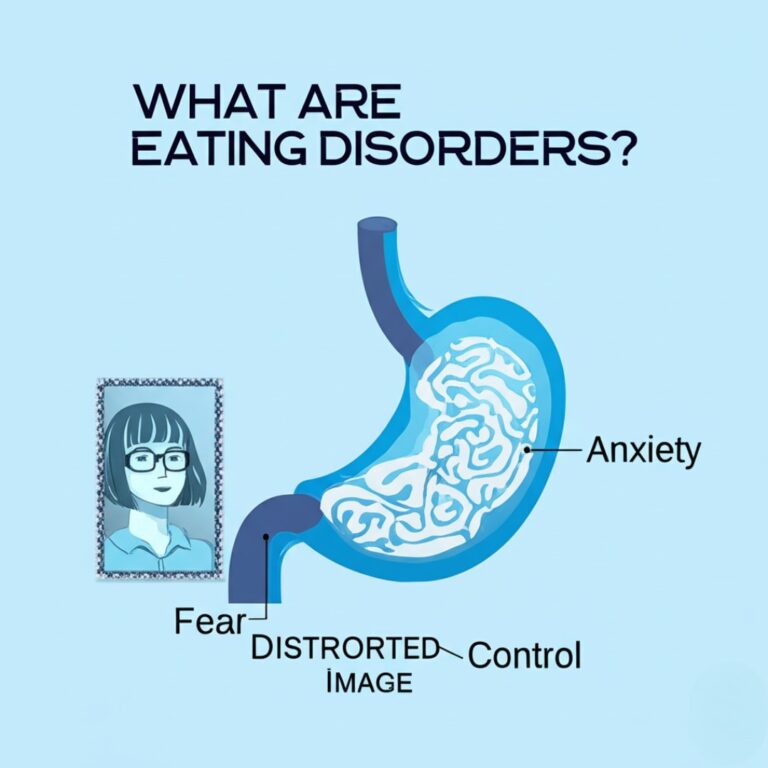Mental Health Technicians care for patients undergoing treatment and recovery for mental health disorders. They interface closely with the psychiatrist, nurse, and therapist to provide humane measures in hospitals, psychiatric facilities, and rehabilitation centers. One may be seeking a career in this profession, such-an understanding of what it is that one will be doing-will help one make the right decision concerning entering into a field so full of things, qualifications, and job so many opportunities available.
What is a Mental Health Technician?
Job of a mental health technician, also known as psychiatric technicians or behavioral health technicians, essentially means the job of a professional who monitors patients with mental illness and emotional disorders. They help in activities of daily living while ensuring safety and implementing treatment plans drawn up by the mental health professionals.
Roles and Responsibilities of a Mental Health Technician
Mental health or psychiatric technicians carry out important programs in the same manner as diversion therapy or simple error-free tests; however, this job description can widen to include classes along with other duties depending on the specific organization and patient requirements. In essence these roles would include the following:
- Observing and recording patient behavior
- Assisting in therapy sessions
- Helping patients with daily activities such as eating, bathing, and dressing
- Administering medication under supervision
- Responding to crises and de-escalating situations
- Providing emotional support and encouragement
- Maintaining a safe and structured environment
How to Become a Mental Health Technician
1. Educational Requirements
While in some states, the position of a mental health technician merely requires the high school diploma together with some on-the-job training, many employers prefer a candidate who possesses some formal education. The following are common paths:
Certificate Programs
Short-term certificate programs are specialized programs offered in mental health care. These programs prepare students in their foundation on entry-level roles and practical skills-they mainly focus on critical topics such as patient care, mental health disorder, or crisis intervention. They also serve to those interested in entering into the field without a relatively long time commitment for education. These certificates are considered an asset for mental health technician positions across multiple employers.
Associate’s Degree in Psychology or Mental Health Technology
An associate underpreparation offers two years of study into the mental health disorders, crisis intervention, and patient-care techniques. The degree supplies students with theoretical and applied training focused on advancing careers in hospitals, rehab centers, and psychiatric settings. Graduates with associate degrees will already have a head start against other contenders for positions and remuneration.
Bachelor’s Degree in Psychology or Related Fields
A bachelor’s degree in psychology or other related fields serves as a suitable foundation for understanding human behaviour, mental treatment, and counselling method. This takes 4 years and may lead to advancement opportunities for the student like supervisory positions, research opportunities, and, finally, licensure as therapist or counselor. First-degree holders, however, remain qualified for graduate options meant to improve their career paths such as a master’s in psychology or social work.
2. Required Skills and Competencies
Most mental health aides succeed through a blend of technical with the interpersonal skills, and these are in particular:
- Strong communication and interpersonal skills
- Patience and empathy
- Crisis management and de-escalation techniques
- Attention to detail for monitoring patient progress
- Basic medical knowledge, including first aid and CPR
3. Certification and Licensing
Getting the certificate or license as a mental health technician will make employment more accessible and indicate professional competency. Certification is not mandatory; however certified programs such as Certified Mental Health Technician (CMHT) or Psychiatric Technician Certification (PTC) will render a candidate evermore strong in the market. Some states require licensing depending on role and work settings. Basic Life Support and CPR certification are also common requirements for emergencies. All of these achievements can bear testament to one’s commitment to quality mental health service and professional development.
Getting certified and licensed as a mental health technician will open better opportunities in work and will illustrate his professional accomplishment. Even though it wasn’t considered mandatory, certifying bodies like Certified Mental Health Technician (CMHT) or Psychiatric Technician Certification (PTC) would make a candidate’s strength in the market. While some states may require licenses according to roles and work settings usually, Basic Life Support and CPR credentials be included in such requirements. All these accomplishments tell a person that he is committed to quality mental health services and professional development.
- Certified Mental Health Technician (CMHT) –Sponsored by the American Medical Certification Association
- Psychiatric Technician Certification (PTC) – Rendered by the American Association of Psychiatric Technicians (AAPT)
- Basic Life Support (BLS) and CPR Certification – Urgent response acts is in required for.
Work Environments for Mental Health Technicians
Mental health technicians work in various healthcare settings, including:
- Psychiatric hospitals
- General hospitals with mental health units
- Residential treatment centers
- Correctional facilities
- Substance abuse rehabilitation centers
- Community mental health clinics
Salary and Job Outlook
1. Average Salary
The working districts, experience, and training determine the pay for mental health technicians. As per the U.S. Bureau of Labor Statistics, the annual salary of a psychiatric technician ranges between $36,000 and $45,000. This money can be complemented with further special certifications or the elevation in the work profile of a mental health technician.
2. Job Growth and Demand
As awareness of mental health issues increases, the demand for mental health technicians in some quarters is believed to be predicated on good patient care.In comparison with the average growth for all occupations, the Bureau of Labor Statistics expects that there will be a 9% increase in demand for psychiatric technicians from 2022-2032.
Career Advancement Opportunities
To hear that made her think of all the fine times Miss Emily had in wearing his white uniform was the black servant who looked after the stove.
- Pertaining to the completion of a degree in Psychology, Social Work, or Counseling.
- Becoming a Registered Nurse (RN) specializing in psychiatric care
- Transitioning into Case Management or Social Work
- Advancing to a Supervisory or Administrative Role
Challenges Faced by Mental Health Technicians
Despite the rewarding nature of this profession, mental health technicians may face challenges such as:
- Emotionally demanding work
- Risk of patient aggression or self-harm incidents
- High-stress situations requiring quick decision-making
- Long and irregular work hours
Conclusion
The function of such a mental health technician remains important in the mental health industry. Technicians provide direct help to require patients. As demand is high for mental health services, the job mainly offers security, sustainment, and advancement. If you have such a nurturing instinct to help others and provide a positive influence toward mental health care, then career options in mental health technology will certainly become an ideal avenue for a satisfying experience.
Share your thoughts and exchange ideas on “Discuss Forum,” a place where you are able to fine-tune your legal practical experience with the published ideas.
FAQs
What does a mental health technician do?
Mental health technicians perform work which, for many, become routine. Among the myriad of duties these technicians might perform are observing a patient’s behavior, helping the patient with the activities of daily living, providing emotional support, and carrying out treatment programs as prescribed, under the supervision of professionals.
What certification do you need to be a mental health technician?
The most common certificate among them which can add on to the job opportunities and professional credibility would be Certified Mental Health Technician as well as Psychiatric Technician Certification and BLS-CPR.
Is a mental health technician the same as a CNA?
It is not so. A mental health technician would be someone who has undergone training in the cares of people’s psychological well-being. Certified Nursing Assistant would, rather, offer services like hygiene, mobility, and medical necessities needed by patients.
Where do mental health technicians make the most money?
Most mental health technicians in the states of California, New York, and Massachusetts will get the best salaries working in places such as psychiatric hospitals, research facilities, or high-demand health units.








